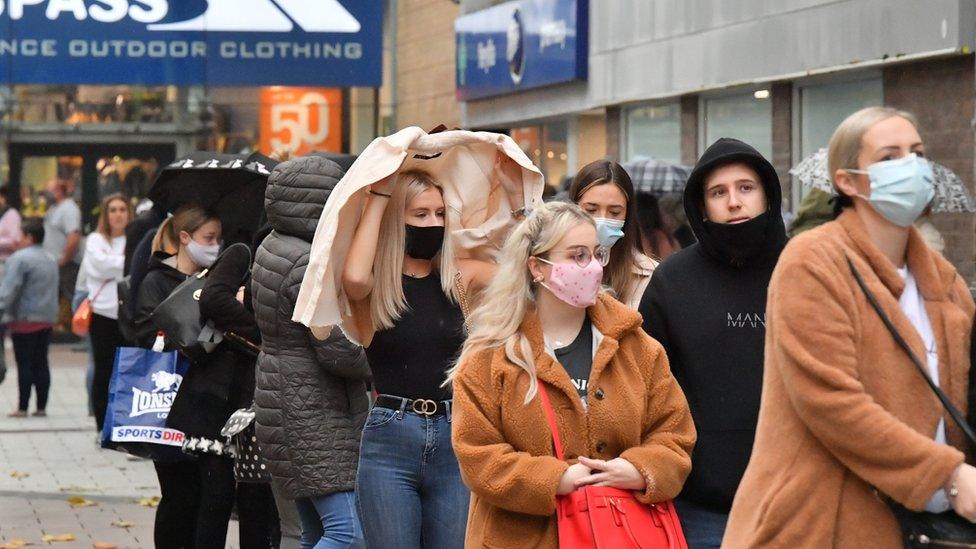Bank of England governor defends self over scandal
- Published
- comments
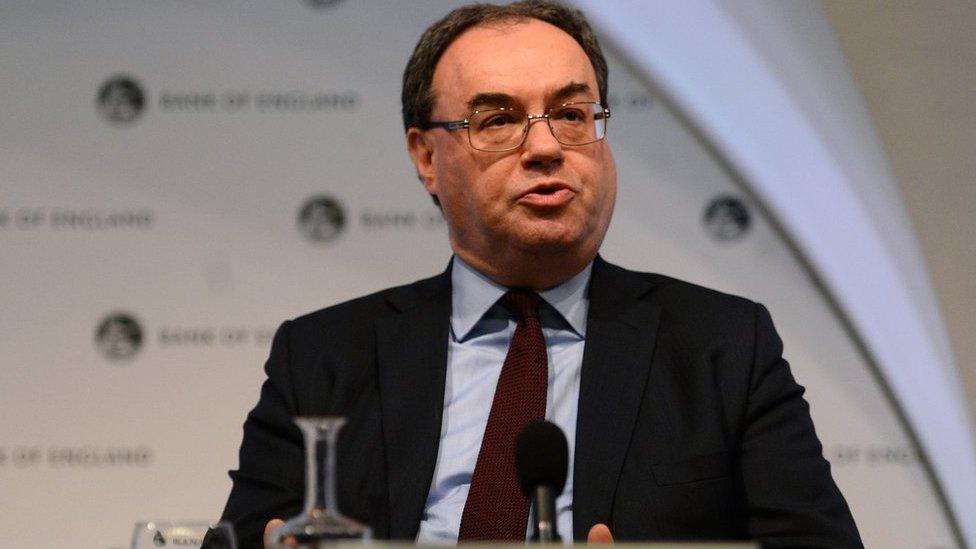
Bank of England governor Andrew Bailey has defended himself after a former appeal court judge criticised evidence he gave to MPs over a scandal in which thousands lost their life savings.
Mr Bailey is the former boss of the Financial Conduct Authority (FCA).
He has been criticised by Dame Elizabeth Gloster for his role at the FCA in regulating London Capital & Finance, which collapsed in 2019.
Mr Bailey said responsibility and culpability were not the same thing.
Before becoming governor, Andrew Bailey was chief executive of the FCA, which was criticised in a report by Dame Elizabeth for failing to supervise and regulate LCF.
Her report named Mr Bailey as responsible for that failure and said he had made legal representations to prevent responsibility for the FCA's failings being attributed to him by name.
Before the Treasury committee of MPs last month, Mr Bailey said he was "angry" and "disturbed" by her criticisms, adding it was "not correct" to say he did not want his name mentioned in the context of personal responsibility and that his apology for the failure had been misrepresented.
That prompted Dame Elizabeth to write to the committee releasing extracts of representations from Mr Bailey's legal team, revealing that they had asked for him not to be named on a number of different grounds.
Savers suffered
More than 11,000 savers lost money in investing £238m in LCF, which went bust in 2019.
BBC Radio 4 Today programme host Martha Kearney asked Mr Bailey about LCF during a wide-ranging interview.
He replied: "I never said that I was not responsible for everything that went on at the FCA. That was my role as CEO.
"The particular issue… was that the first draft of the report introduced responsibility and culpability together in an inseparable way and they're not the same thing."
Separately, Mr Bailey has come under new criticism following a report that he failed to declare a potential conflict of interest in a scandal that saw thousands of bank customers mistreated.
The Royal Bank of Scotland (RBS) was accused of benefiting as it left some of its customers in financial ruin.
Now it is reported that Mr Bailey did not reveal his role in the scandal.
The Bank of England said there was no interest to declare.
'New tools'
During the same BBC Today interview, Mr Bailey said he was "not out of firepower" in defending the UK economy as it recovers from the pandemic.
He said he was looking at "new tools" to deal with the UK's biggest economic shock in 300 years.
These could include negative interest rates, but "that's not a view on whether we will use them or not".
"The economy will actually get back at the end of this year to where it was at the end of 2019," he said.
However, that was "not much more than getting back to where we were pre-Covid".
Mr Bailey said the Bank expected inflation to start rising towards its 2% target in "the next two or three months".
But he added that the Bank's rate-setting Monetary Policy Committee would need to see "a lot more evidence" that the inflationary trend was sustainable before acting, given the "huge uncertainty" over the economic effects of Covid.
"We are not out of tools, we are not out of firepower," Mr Bailey said.
Although he did not commit one way or the other on the use of negative interest rates, he said it was "appropriate to have that tool in the box".
The Bank governor's comments follow months of public speculation about the possibility of negative rates, with several former and current Bank policymakers weighing in with their views.
At the same time, other commentators have been warning that the economy could overheat as the end of lockdown unleashes pent-up consumer demand, with a surge in inflation as a result.
Mr Bailey said he had seen "no evidence" to support fears that inflation could hit 4% or 5% as the recovery gathered pace.
He said the UK's vaccination campaign had been "a great achievement" and he was now "more positive" about the recovery, but he wanted to add "a large dose of caution".
Mr Bailey warned that new variants of the virus could still pose a risk to the recovery.
He also said the economic effects of the pandemic had been "very unequal".
"Covid has affected the low-paid more. There are more women in that section of the labour force," he said.
Ethnic minorities were also disproportionately affected, he added.
But he said it was "very helpful" that the furlough scheme was now projected to extend beyond the lifting of Covid restrictions, which should "help to smooth that transition".
Related topics
- Published15 March 2021
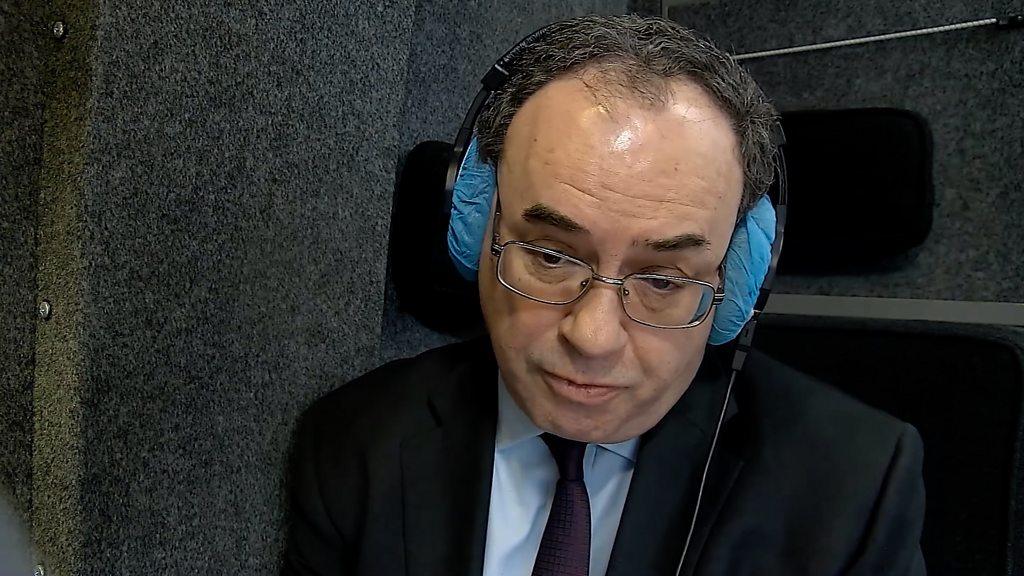
- Published15 March 2021
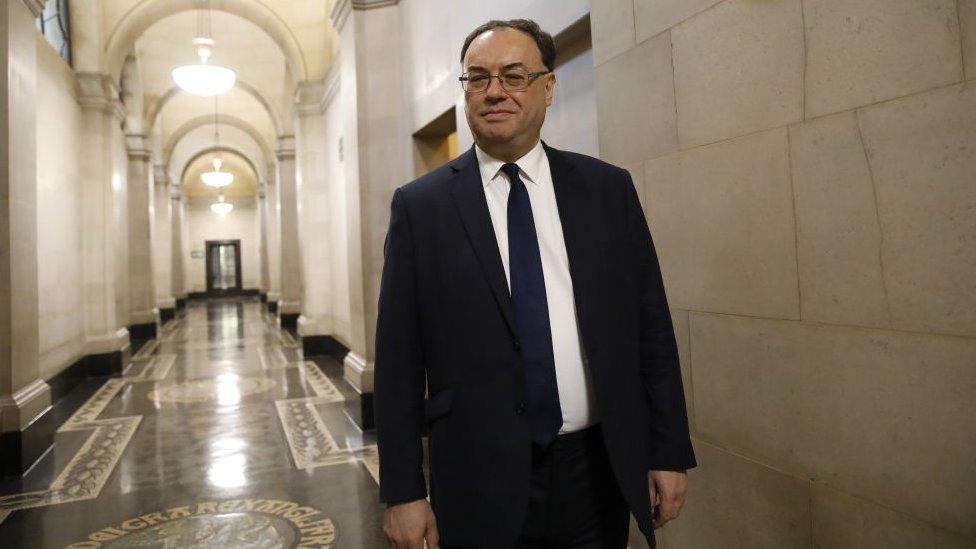
- Published8 March 2021
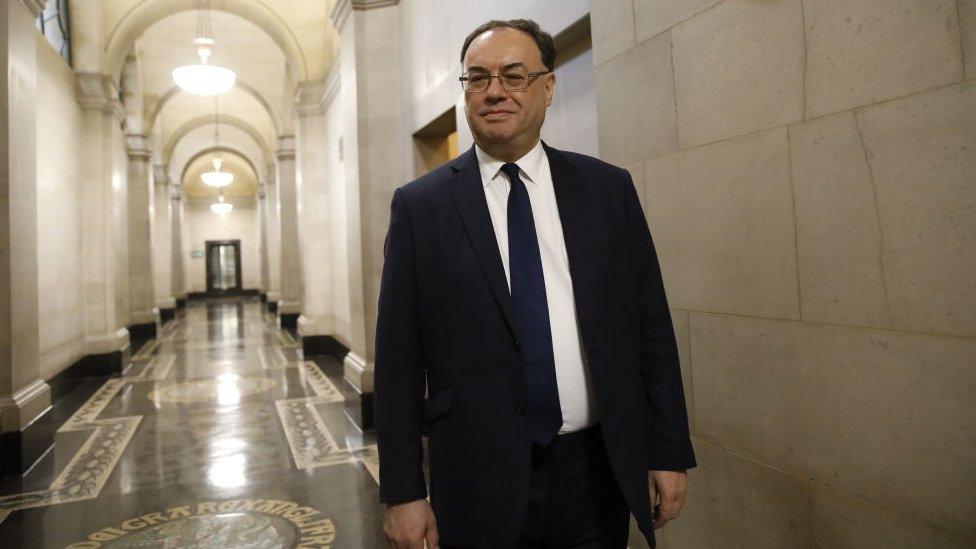
- Published4 February 2021
